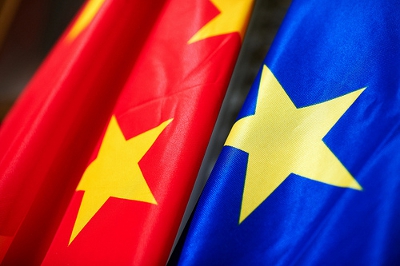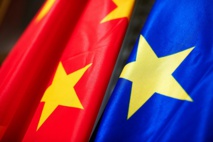At the moment, amount of investment has not yet been exactly determined, but this promise is yet another step in China's effort to strengthen its global economic influence, and represents the desire to support the decision of the major European powers to join in Asian infrastructure investment bank, headed by China, even despite the resistance of Washington.
China is expected to make a request to respond investments in Chinese ‘western’ infrastructure project ‘One Belt, One Road’, according to which large energy and communication nodes to be built through the Central, West and South Asia up to Greece.
The final version of the agreement specifying the size of co-financing and strategic investments will be finalized in September. One of European diplomats noted that China's investment will reach billions.
The EU and China representatives said to Reuters that the Chinese banks seek to invest primarily in the telecommunications and technology projects.
Chinese Premier Li Keqiang, who will visit the summit in Brussels, is expected to announce the idea that the fund size of 315 billion euros "will make it possible for China to invest in the EU, particularly in infrastructure and innovation".
If the agreement is signed, it will be a great success for the head of the European Commission, Jean-Claude Juncker, who last year faced criticism and skepticism about its proposed European Strategic Investment Fund (EFSI), as the European governments allocate too little money to start capital.
France, Germany, Italy and Poland have announced their intention to add 8 billion euros, while Spain and Luxembourg pledged to make even less.
Basically, countries rely on private investors and development banks, which should finance projects chosen from the initial list of about 2 thousand of options proposed by 28 countries - from airports construction to flood protection. The total cost of the projects amounts to 1.3 trillion euros.
A large amount of Chinese investment could raise questions about the management of the fund (which is actually a European institution).
A European diplomat said that it is not known whether China is seeking to represent their interests in the fund in accordance with the proportion of investment.
The decision to invite China to participate in the European fund angered Washington, which is already concerned about Beijing's growing influence in the world, as well as the fact that the EU ignored the calls to the United States not to take part in the Asian bank of infrastructure investments.
China is already pushing the limits of the US influence in Latin America, offering the region an investment of $ 250 billion over the next decade, while Chinese companies are already investing heavily in Africa, ensuring the delivery of commodities in exchange for the construction of new roads, hospitals and railways.
The United States and the Organization for the Protection of Human Rights have expressed dissatisfaction at the fact that China and its companies are increasing their influence partly through corruption and sometimes ignoring environmental issues and human rights.
It is worth noting that western multinational corporations in developing countries were criticized for the same too.
source: reuters.com
China is expected to make a request to respond investments in Chinese ‘western’ infrastructure project ‘One Belt, One Road’, according to which large energy and communication nodes to be built through the Central, West and South Asia up to Greece.
The final version of the agreement specifying the size of co-financing and strategic investments will be finalized in September. One of European diplomats noted that China's investment will reach billions.
The EU and China representatives said to Reuters that the Chinese banks seek to invest primarily in the telecommunications and technology projects.
Chinese Premier Li Keqiang, who will visit the summit in Brussels, is expected to announce the idea that the fund size of 315 billion euros "will make it possible for China to invest in the EU, particularly in infrastructure and innovation".
If the agreement is signed, it will be a great success for the head of the European Commission, Jean-Claude Juncker, who last year faced criticism and skepticism about its proposed European Strategic Investment Fund (EFSI), as the European governments allocate too little money to start capital.
France, Germany, Italy and Poland have announced their intention to add 8 billion euros, while Spain and Luxembourg pledged to make even less.
Basically, countries rely on private investors and development banks, which should finance projects chosen from the initial list of about 2 thousand of options proposed by 28 countries - from airports construction to flood protection. The total cost of the projects amounts to 1.3 trillion euros.
A large amount of Chinese investment could raise questions about the management of the fund (which is actually a European institution).
A European diplomat said that it is not known whether China is seeking to represent their interests in the fund in accordance with the proportion of investment.
The decision to invite China to participate in the European fund angered Washington, which is already concerned about Beijing's growing influence in the world, as well as the fact that the EU ignored the calls to the United States not to take part in the Asian bank of infrastructure investments.
China is already pushing the limits of the US influence in Latin America, offering the region an investment of $ 250 billion over the next decade, while Chinese companies are already investing heavily in Africa, ensuring the delivery of commodities in exchange for the construction of new roads, hospitals and railways.
The United States and the Organization for the Protection of Human Rights have expressed dissatisfaction at the fact that China and its companies are increasing their influence partly through corruption and sometimes ignoring environmental issues and human rights.
It is worth noting that western multinational corporations in developing countries were criticized for the same too.
source: reuters.com



















